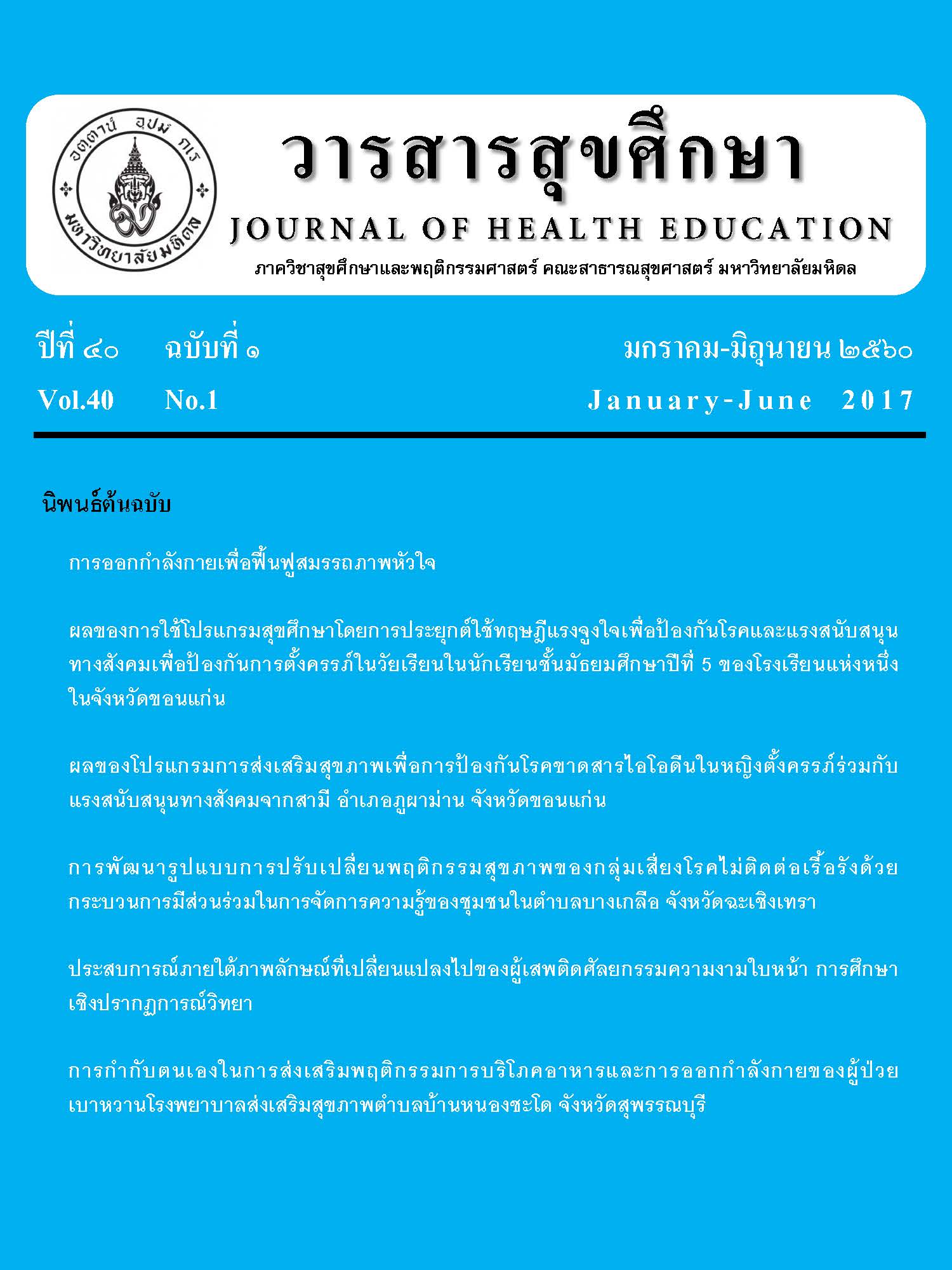SELF-REGULATION TO PROMOTE DIETARY AND EXERCISE BEHAVIORS OF TYPE II DIABETIC PATIENTS OF BAN-NONGCHADO SUB-DISTRICT HEALTH PROMOTING HOSPITAL, SUPHANBURI PROVINCE
Main Article Content
Abstract
This pretest-posttest quasi-experimental research aimed to study the effect of a program that “the take PRIDE” was applied to promote dietary and exercise behaviors of type II diabetic patients. The study samples were 60 diabetic patients of Ban-Nong- Chado sub-district health promotion hospital, U-thong district, Suphanburi province. They were randomly assigned into an experimental group of 30 patients and as a comparison group with the rest 30 patients. The experiment group participated in the program, that goal setting and self-efficacy enhancement to perform goal-set behaviors were emphasized, 4 consecutive times at two weeks apart. Data was collected by a self-administered questionnaire and was analyzed using frequency, percent, mean, standard deviation; and the study hypotheses were tested by Paired Samples t-test and Independent t-test.
Results of the study revealed that after experimentation, the experimental group had significantly better perceived self-efficacy regarding dietary and exercise to control blood sugar and perform significantly better dietary and exercise behaviors than before the experiment and better than that of the comparison group (p<0.05). The experimental group also had significantly lower cumulative blood sugar (HbA1c) than before the experiment and lower than that of the comparison group (p<0.05). These results indicated that self-regulation combined with self-efficacy enhancement enable the diabetic patients to modify their dietary and exercise behaviors in which effect the decreasing of blood sugar (HbA1c). Thus, the program could be applied for other diabetic groups.

